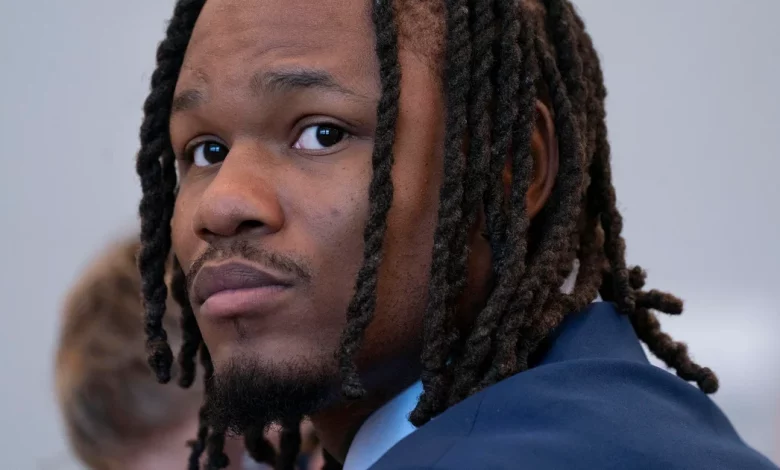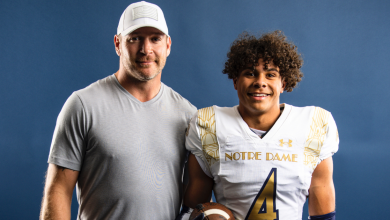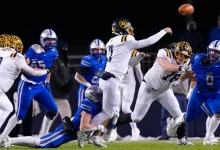Former Lakers player Ben McLemore was found guilty of rape in Oregon and now faces a lengthy prison sentence if convicted.

Former Los Angeles Lakers guard Ben McLemore, once known for his three-point shooting and athleticism on the court, now faces a grim future behind bars. On July 2, 2025, a jury in Clackamas County, Oregon, found McLemore guilty of first-degree rape, first-degree unlawful sexual penetration, and second-degree sexual abuse. This verdict stems from a 2021 incident at a party hosted by a former NBA teammate, where prosecutors say McLemore raped a 21-year-old woman who was too intoxicated to consent.
The 31-year-old former lottery pick is now awaiting sentencing, which is scheduled for July 9. Under Oregon law, McLemore could face a mandatory minimum sentence of over 8 years, and up to 20 years in prison.
This marks a dramatic and tragic fall for a player who once showed promise as a top prospect in the NBA.
The Night of the Incident
The case centers on an event that took place on the night of October 3, 2021, at a private lake house near Lake Oswego, Oregon. The party was reportedly organized by Robert Covington, McLemore’s then-teammate on the Portland Trail Blazers.
The victim, a 21-year-old college student, testified that she had consumed alcohol heavily throughout the night and had very little recollection of what happened. She described being “blackout drunk,” unable to stand or speak clearly, and eventually passing out on a couch at the house. She later awoke to find McLemore sexually assaulting her.
Prosecutors presented photo and video evidence showing the woman slumped over a toilet and lying motionless on the couch in the hours before the alleged assault. Multiple witnesses also testified that she was in no condition to give consent. The jury concluded that the woman was incapacitated and incapable of consenting to any sexual act.
Trial Details and Jury Verdict
McLemore was arrested in April 2024, more than two years after the incident, after an extensive investigation by local law enforcement and the district attorney’s office. He was released on bail and pleaded not guilty, setting the stage for a high-profile criminal trial.
The trial lasted 11 days. During that time:
-
The victim testified in emotional detail about her lack of memory, her sense of violation, and the trauma that followed the night.
-
The prosecution argued that McLemore had targeted the victim when she was most vulnerable and used her incapacitated state to take advantage of her.
-
The defense argued that the encounter was consensual and suggested both parties were intoxicated. McLemore himself took the stand and maintained his innocence, claiming the interaction was mutual and that there was no indication of non-consent.
After roughly 10 hours of deliberation, the jury returned with guilty verdicts on three of the four charges.
Legal Ramifications and Sentencing Outlook
Under Oregon criminal law, a conviction for first-degree rape carries a minimum sentence of 100 months (8 years, 4 months) without the possibility of parole, and up to 20 years depending on aggravating circumstances. The court will hear victim impact statements, evaluate McLemore’s lack of prior convictions, and consider his cooperation (or lack thereof) during the investigation before determining the sentence.
The sentencing hearing is scheduled for 9:30 a.m. on July 9, and legal analysts believe the judge may impose a sentence closer to the maximum end of the range due to the nature of the offense.
A Career Cut Short
Ben McLemore entered the NBA with significant hype after a standout season at the University of Kansas, where he showcased elite shooting ability and explosive athleticism. He was selected with the 7th overall pick in the 2013 NBA Draft by the Sacramento Kings.
In his 9-year NBA career, McLemore played for:
-
Sacramento Kings (2013–2017, 2018)
-
Memphis Grizzlies (2017–2018)
-
Houston Rockets (2019–2021)
-
Los Angeles Lakers (2021)
-
Portland Trail Blazers (2021–2022)
Over 556 career games, he averaged 9.0 points per game, often serving as a bench scorer and perimeter threat.
Following his NBA career, McLemore played internationally, including stints in China, Greece, Spain, and most recently Turkey. Despite bouncing between leagues, he remained in basketball shape and had been considered a possible late-season NBA signing prior to his arrest.
That future is now off the table.
The NBA’s Response and Public Reaction
The NBA has not issued an official comment on McLemore’s conviction. As he was not under contract with any NBA team at the time of his trial, the league is not obligated to take disciplinary action. However, given the gravity of the charges, it is highly unlikely that McLemore will ever return to the league.
The reaction from the basketball community has been mixed. Some former teammates have expressed shock and sadness, while others have withheld comment. Fans have taken to social media, with responses ranging from support for the victim to disbelief that a former professional athlete could commit such a crime.
Cultural and Legal Implications
McLemore’s conviction comes at a time when sports leagues, including the NBA, are under increasing scrutiny for how they handle cases involving violence against women. While the league has made strides in policy and education, this case reignites conversations around consent, alcohol, and accountability—particularly among high-profile individuals.
Legal experts point to this case as a landmark example of how courts are treating consent more seriously when intoxication is involved. Oregon law is particularly strict in defining incapacity and holds that a person who is unconscious or severely impaired cannot legally give consent, regardless of prior interaction.
Victim’s Statement and Closure
Though she has chosen to remain anonymous, the victim issued a brief statement through the district attorney’s office following the verdict:
“This has been the most painful experience of my life, but I am grateful to the jury for believing me. I came forward not only for justice for myself, but so others know it’s okay to speak up.”
Her words highlight the emotional toll such trials take—not only due to the trauma of the incident itself but also the public scrutiny and grueling cross-examinations in court.
McLemore’s Future: Appeals and Consequences
McLemore’s defense team has already indicated they plan to file an appeal, citing “insufficient evidence” and alleged inconsistencies in the prosecution’s timeline. However, overturning a jury verdict in a rape case, especially one supported by witness testimony and photographic evidence, is statistically rare.
If the sentence stands, McLemore will serve a minimum of 8 years in an Oregon state prison, likely in a medium-security facility. Once released, he will be registered as a sex offender, and his ability to travel, work, and engage in public life will be severely restricted.
Ben McLemore’s story is now forever tied not to buzzer-beaters or slam dunks, but to one of the most serious crimes a person can commit. A man once celebrated on the court is now a convicted felon, facing the loss of his freedom and his reputation.
His conviction serves as a sobering reminder: No level of fame, athletic prowess, or public image is above the law. The justice system has spoken, and what remains now is sentencing—and the long road ahead for both the victim and the convicted.









